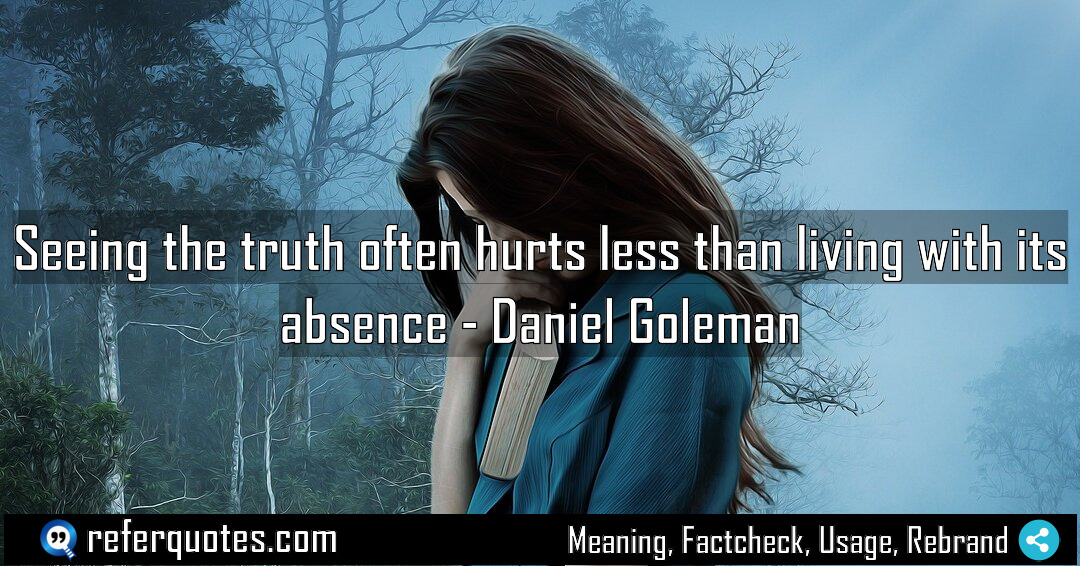Seeing the truth often hurts less… it’s a gut punch of a line, right? But it’s one of those truths that, once you really get it, changes how you approach everything—from your career to your relationships. It’s about the long-term cost of comfort versus the short-term sting of reality.
Share Image Quote:Table of Contents
Meaning
The core message is brutally simple: The immediate pain of facing a difficult truth is almost always less damaging than the slow, corrosive decay of living a lie.
Explanation
Look, I’ve seen this play out so many times. We’re wired to avoid pain. So when a hard truth comes knocking—a failing project, a struggling relationship, a personal flaw—our first instinct is to build a wall. We tell ourselves a more comfortable story. But here’s the thing Goleman nails: that comfortable story? It’s a parasite. It feeds on your energy, your focus, your peace of mind. The “hurt” of the truth is a clean break. A one-time event. You process it, you learn, you move forward. But the *absence* of truth? That’s a low-grade fever you can’t shake. It’s the constant, background anxiety of knowing, on some level, that the foundation is cracked. The lie isn’t a shelter; it’s a cage.
Quote Summary
| Context | Attributes |
|---|---|
| Original Language | English (3668) |
| Category | Life (320) |
| Topics | acceptance (73), pain (20), truth (77) |
| Literary Style | concise (408) |
| Emotion / Mood | gentle (183), hopeful (357) |
| Overall Quote Score | 85 (305) |
Origin & Factcheck
This comes straight from Daniel Goleman’s 1985 book, Vital Lies, Simple Truths: The Psychology of Self-Deception. You’ll sometimes see it floating around unattributed or misattributed to other self-help gurus, but its home is firmly in Goleman’s groundbreaking work on how our minds protect us from uncomfortable realities.
Attribution Summary
| Context | Attributes |
|---|---|
| Author | Daniel Goleman (125) |
| Source Type | Book (4032) |
| Source/Book Name | Vital Lies, Simple Truths: The Psychology of Self-Deception (61) |
| Origin Timeperiod | Modern (530) |
| Original Language | English (3668) |
| Authenticity | Verified (4032) |
Author Bio
Daniel Goleman is a psychologist and bestselling author whose journalism at The New York Times brought brain and behavior science to a wide audience. He earned a BA from Amherst and a PhD in psychology from Harvard, and studied in India on a Harvard fellowship. Goleman’s research and writing helped mainstream emotional intelligence, leadership competencies, attention, and contemplative science. He co-founded CASEL and a leading research consortium on EI at work. The Daniel Goleman book list includes Emotional Intelligence, Working with Emotional Intelligence, Primal Leadership, Social Intelligence, Focus, and Altered Traits.
| Official Website
Where is this quotation located?
| Quotation | Seeing the truth often hurts less than living with its absence |
| Book Details | Publication Year: 1985; ISBN: 9780743240156; Last edition: 1996 Harper Perennial; Number of pages: 288. |
| Where is it? | Approximate page from 1996 edition, Chapter 6: The Adaptive Mind |
